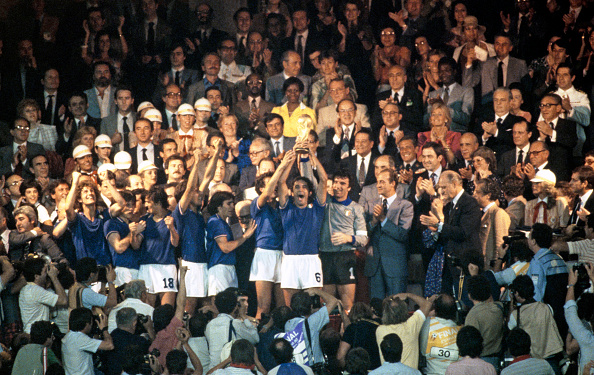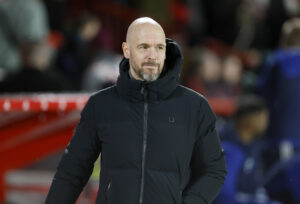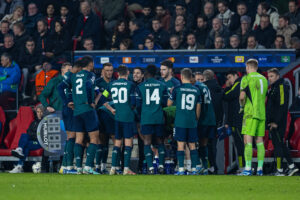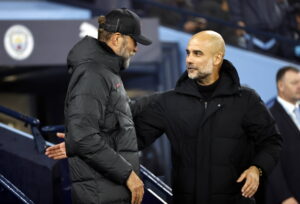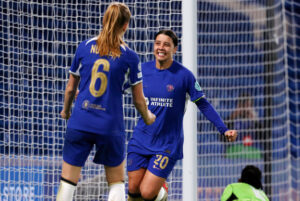European club football’s top table was once again missing one of its oldest guests this week with no Italian football clubs in the last eight of the European Cup for the second year in a row. In the backwaters of the Europa and Europa Conference leagues, there are just two sides: Atalanta and Roma. The irony of Juventus once again bowing out to a side deemed unworthy of the European Super League shouldn’t be lost on anyone – Villareal joining Ajax, Lyon and Porto in this category.
The national team, whose EURO 2020 triumph acted as somewhat of a two-finger salute to the doubters of Italian football, will also be MIA on the biggest stage this year having missed out on World Cup qualification again. Since winning the competition in 2006, the Azzuri have won just one match and have not featured in the knockout stages. It’ll be 20 years of pain before these wrongs can be righted.
It’s a world away from the halcyon days of Italian football – the mid-1980s to the early 2000s – when Serie A was the best league in the world, host to the biggest and brightest stars and reigned supreme on the continent. Simply put: When Calcio was King.
The Golden Age of Italian Football When Calcio Was King
Winds of Change Sweep Through the Peninsula
Following on from the successes of both Milan’s, Inter and AC, in the 1960s, Italian clubs would experience a barren period in the decade or so to follow. There were few finalists, and a solitary winner across Europe’s three competitions, European Cup, the then-named UEFA Cup (Juve ’77) and the now-defunct Cup Winners’ Cup.
A series of events contributed to Calcio’s golden age: Italy winning the ’82 World Cup, Michel Platini joining Juve the same summer, Diego Maradona’s move to Napoli in ’84 – the first of many world-record fees paid by Italian clubs. The Heysel Stadium Disaster in ’85 which led to a 5-year European banning of English clubs – winners in seven of the previous eight seasons, their absence opened the gates to Italy. Italia ’90 resulted in a national footballing boon – boosted economy, new stadia and new fans.
It was also here that Paul Gascoigne became an icon, both for his performances and tears. It led to a transfer to Lazio in 1992, a spike in UK interest in Serie A and Channel 4’s creation of “Football Italia”.
AC Milan and Juventus Lead the Charge, the Rest Follow
To back up the notion of a golden age, have a look at some of the stats. In the 11 seasons from 1988-89 to 1998-99, Serie A clubs had 28 finalists in Europe, with four European Cups, eight UEFA Cups and three Cup Winners’ Cups triumphs. Their stranglehold over the UEFA Cup was such that four finals were all-Italian affairs.
Milan, bankrolled by the sportswashing Silvio Berlusconi, coached first by Arrigo Sacchi and later Fabio Capello kick started Calcio’s dominance – back-to-back European Cup wins in ’89 and ’90, three finals in a row from ’93 to ’95. A 4-0 victory over Johan Cruyff’s Barcelona “Dream Team” in ’94 being the pinnacle. The side of Dutch trio Marco Van Basten, Ruud Gullit and Frank Rijkaard coupled with Italian stars Franco Baresi, Paolo Maldini et al. changed how football was played.
Juve, under the reigns of Marcello Lippi, took up the mantle of European football’s standard, copying Milan with a three-peat of their own, from ’96-’98, victory in the first adding to triumphs in Europe’s other competitions. Again, the blend of foreign: Zinedine Zidane, Edgar Davids and co. and Italian: Alessandro Del Piero, Antonio Conte etc. was the recipe for success.
While European Cup supremacy belonged to AC and Juve, the rest still got theirs. Inter won three UEFA Cups in the ‘90s, Parma won all eight of their major trophies from ’92-’02 including two UEFA Cups and the Cup Winner’s Cup. Lazio, Napoli, Sampdoria and Fiorentina (led by the irrepressible Gabriel Batistuta) all enjoyed similar golden periods, the best in their history.
Serie A – Where the Big Boys Play, But Italy Fall Short on the Big Stage
The status as best league in the world was reflected in the transfer market – from Maradona’s move in 1984 to 2000, Italian clubs were responsible for seven of the nine world-record transfer fees, spent on the likes of Gullit, Roberto Baggio, Jean-Pierre Papin and Hernán Crespo. Ballon D’Or voting also demonstrated this – 14 of 18 winners from 1982 to 1998 – Ronaldo, Zidane, Van Basten, Platini, George Weah and Lothar Matthäus amongst them. The league read as a who’s who of the world’s best players.
League success didn’t translate to the international stage after the ’82 World Cup, with the Azzuri suffering heartbreak in the finals of World Cup ’94 (penalties) and Euro 2000 (extra-time golden goal).
The New Millennium Brings a New Order in European Football
The turn of the century saw a changing of the guard, as the landscape of European football was altered by the commercialisation of the Premier League, and Real Madrid, Barcelona and Bayern Munich flexing their corporate muscle once more. The Italian clubs soon struggled as a result of their previous lavish spending but now-static revenue – Parma and Fiorentina went bust. The sales of Ronaldo and Zidane to Real, as well as Juan Sebastián Verón from Lazio to Manchester United were indicative of this new era.
Some success was still experienced – an all-Italian European Cup final between Juve and AC in ’03, Milan finalists again in ’05 and ’07, winning the latter and somehow losing the former. The national team won the 2006 World Cup, under the cloud of the Calciopoli match-fixing scandal which rocked Italian football, and led to Juve’s relegation to Serie B – a footballing juxtaposition, the endpoint of Italy as a major power.
Inter, European Cup winners under Jose Mourinho in 2010, are the last Italian winner in Europe. The Nerazzurri are also the only Europa League finalist from Serie A in the 21st century.
Calcio’s Fall From Grace Set to Continue
This drought is unlikely to end this season or any time soon, given the lack of high-level investment, the purchases of cast-off Premier League players and the failing academy systems that are harming the league and the national team. The Euros looks to have been an anomaly, and the golden age of Calcio is but a memory at this stage.
Main Photo


